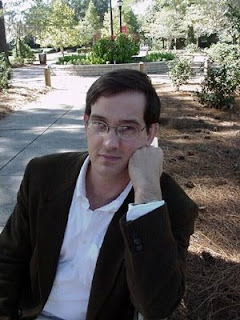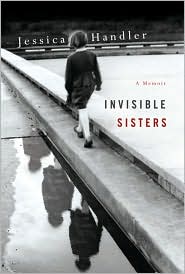
For those of you who may not know, Paul Hemphill lost his battle with cancer Saturday. Though I understand a bit about what he has meant to our Southern culture, I never had the pleasure of meeting Hemphill, so I think writing about him is best left to one who knew him well and admired him greatly. Frank Reiss posted this reflection on Hemphill’s passing over at his bookstore blog, and I’ve re-posted here for our readers:
I have written one fan letter in my life, and it was to Paul Hemphill, who died this morning at age 73 after battling cancer for the last couple of years.
It was 1989, and I had just moved back to my hometown of Atlanta with plans of opening a bookstore after years of managing one in San Francisco. Right before leaving the Bay Area, I stumbled upon a copy of Hemphill's first novel,
Long Gone, and being an avid baseball fan, I was drawn to its subject -- the lowest of the low minor leagues, and going through a somewhat turbulent departure from San Francisco, I was comforted by the book's great humor.
Reading the author bio on the book's jacket, I immediately recognized Hemphill's first title,
The Nashville Sound, and also being a fan of country music, I grabbed the first copy of that one I could find, too.
Before packing up my truck and heading home, though, I discovered
Too Old to Cry, a collection of Hemphill's newspaper columns and other journalism--including some during his own ill-fated stint in San Francisco, and at that point, I knew I had found a writer who spoke to me as few others ever had or ever would.
Hemphill was a native Southerner who loved so much about his culture that he was secure in pointing out its obvious defects. He was a natural journalist, whose writing embodied all the economy and simplicity of that world, but whose desire was to be more than that, to be a "real" writer, of books, at a time when those seemed to be things of permanence.
One of the first things I did when I got back to Atlanta, before buying inventory, before leasing a storefront, before coming up with a name, before writing a business plan (come to think of it, I still haven't written a business plan), was to write a fan letter to Paul Hemphill.
I can't remember exactly what I told him in that letter, other than to say how much his work had inspired me at a time in my life when I was dealing with my essential identity as a Southerner despite most of the previous decade on the West Coast seeing if I could perhaps be something else.
Not long after I opened A Cappella in the cold of that winter, a skinny man in a fur-lined coat stepped inside my door and said, a la Johnny Cash, "I'm Paul Hemphill."
I tingled with excitement and with a shaky voice showed him around my tiny new store, paying special attention to the first editions of all of his books that I showcased near the front.
I remained too in awe of Hemphill to ever even feel comfortable calling him "Paul," but over the years, we spent a good deal of time together, and in one of the career moves I take most pride in, I republished that first book,
The Nashville Sound , to coincide with the publication of his great Hank Williams biography,
Lovesick Blues, in 2005.
I have saved the email from when he agreed to let me do it, both because, like I say, it was a proud moment for me but also because its subject line is such a perfect example of Hemphill concision. It reads simply: "Let's Do Nashville."
Like most of my business endeavors--and most of his--the Nashville reprint was only a modest success. But, in our world, where Hank Williams always works as a soundtrack and failing to get a hit 7 out of 10 times at bat is as good as it gets--we were inspired enough by its performance to reprint the only remaining of his titles to, at that point, be out of print:
Mayor: Notes on the Sixties, which he authored with Ivan Allen, Jr.
Soon, however, I received another classic Hemphill email:
"My life's on hold these days. Docs found cancer in my throat. Seems curable, and without too much pain. Excellent people on the case at Piedmont and Emory. No need to fret. Might be clear in couple of months."
That was two and a half years ago. By early this year, it was clear that he wouldn't be clear, and that
Mayor would have to wait. Like everyone who knew the man, I've been prepared for this day for a while. I doesn't make the loss any less great.
It is possible to make too great a claim for Paul Hemphill's writing. It had its limits. It could be repetitious. But for anyone who ever fell under the sway of his words and his work, it was pure inspiration. Here was a man who did what he did, and did it damn well. It didn't make his life easy. But it made his city and his world a better place.
I am so grateful for the life and the example of Paul Hemphill.
-Frank Reiss, Owner, A Capella Books; Co-Host of Cover to Cover
July 11, 2009
Listen to this episode









































